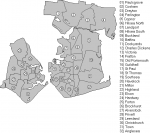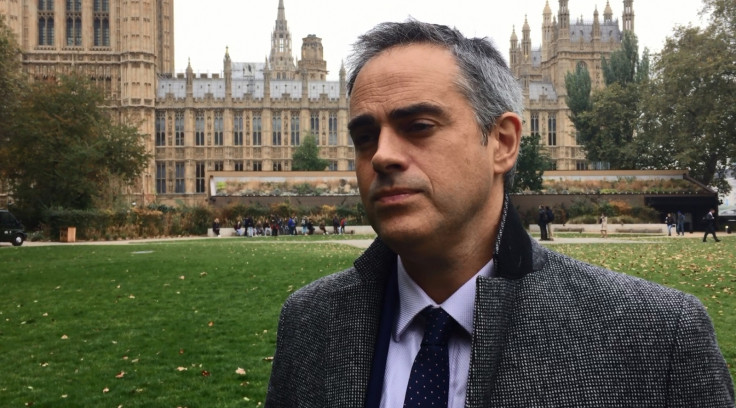-
Hi Guest!
The costs of running this forum are covered by Sea Lion Press. If you'd like to help support the company and the forum, visit patreon.com/sealionpress
You are using an out of date browser. It may not display this or other websites correctly.
You should upgrade or use an alternative browser.
You should upgrade or use an alternative browser.
Moth's Graphics & Test Thread
- Thread starter moth
- Start date

Other challenges facing the Social Democrats included that of Anglia Advance!, a centrist liberal party started by businessmen Alex Anderson as a direct challenge to the Governments free trade policies. Speculation over Liberal Leader and Foreign Minister Richard Fraddon's relationship with Anderson provoked outrage when it was suggested that the two may form an alliance, taking advantage of both Fraddon and Anderson's popularity to fight for and form their own Government. Nothing came from theses rumours; indeed the Liberals would be hardest hit by Anglia Advance!, who absorbed over half of the party's vote share. Another challenge was that of the Reform Party. Although previously dismissed as a right-wing 'none of the above' movement, the party grew teeth following the Castle Point by-election, in which Reform's Chief Executive Officer James Martin was elected with an overwhelming majority. With both Anglia Advance! and Reform posing a direct challenge to him, James felt compromised, resulting in the publication of the Social Democrats manifesto, a document described by Fraddon as 'more confused that my old Nan'.
The Co-Operative Party faced its own issues. Mary Braiser had in the year previous faced a vote of no confidence she had survived by only the skin of her teeth. Personal scandals rocked her Opposition Frontbenchers, particularly as many were found to illegally hold duel citizenships with the Celtic Federation of Britain, triggering by-elections that the Co-Operative often won only thanks to good fortune. The Popular Front was united in name only, with the Co-Operative executive deciding to contest Green Party seats and end its decades old electoral pact. This divided the left to some extent, as did the rise of Anglia Advance!, and made the question of a red/green coalition following the election questionable. Braiser found some support following the Rail Strikes over the Christmas and News Year running up to the election, but her cautious approach in contrast to her Green counterpart threw away what growth the party could find.
The election results were an upset. Both Anglia Advance! and Reform proved to be paper tigers, underperforming as their healthy polling margins collapsed in the final week during the 'squeeze' period. The Green Party, although expanding their vote by a third, lost a third of its seats, including that of leader Rachel Woolf, who was taken about in Oxford East by the Co-Operative Candidate. Both the Co-Operative and Liberal Party's lost votes, however thanks to vote splitting increased their seat shares. The Social Democrats held better than expected, however lost seats and votes. Taking both the plurality of votes and coming only seven seats shy of an overall majority, the Co-Operative renegotiated its deal with the Green Party, later forming a Government with the supply and confidence of Anglia Advance!

The Conservatives will run the London Assembly, but will have to share power. Jubilation for Pamela Chesters, although she will need to do a deal with the Liberal Democrats to become London's First Minister. Commiserations for Hilary Benn as the Labour Party lose power for the first time in the Assembly's history. And a gasp of relief for the Greens, who have gained seats despite a drop in their vote share.
Tonights other headlines: Japan's Minister of Finance Masayuki Naoshima has announced that has raised interests rates five times in one day to nearly thirty percent in a desperate struggle to prop up the Yen, but after a hectic day of trading the Yen plunges deeper. Prime Minister Sumio Mabuchi has vowed to take whatever measures are necessary to protect Japan's fragile currency, while the United States and Korea have suspended trading with Japan in an attempt to protect their own.
And the Russian, the BBC meet with Alexander Donskoy, the Retail Billionaire who believes he has what it takes to defeat President Kiriyenko in this years election.
==title==
Good evening from London, where the Assembly will by once more run by a coalition. The Conservatives won the most seats, but not an outright majority and will likely try to reach a deal over the weekend with the Liberal Democrats. Fewer than three percent of those required to vote bothered to do so, setting the highest recorded turnout in London's history, and the highest anywhere since the introduction of compulsory voting. The Liberal Democrats scored tremendous victories in Richmond and Haringey, overturning 8000 and 19000 vote majorities, respectively, while the nationalist London First saw both its vote and seat share collapse. Tim Collins hailed the collapse of the nationalists and Chesters' victory, saying that "London's communities are stronger tonight".
So London. Out of the ninety-six in the new assembly, the Conservatives have twenty eight. Labour, with twenty six, will be a main opposition. The Liberal Democrats have twenty-one seats, and the Greens fifteen. The last six are shared equally between the Left List, London First, and Havering Residents Association. The Conservatives are twenty-one short of an overall majority. Mark Singer on what is a bad day for the Labour Party.
At the end of a disappointing campaign for First Minister Hilary Benn, Labour Party officials were putting a brave face on things and denied their vision for London was incompatible with London itself. It was a campaign in which Liberal Democrat campaigners could hardly believe the results. The party that was nearly wiped out in London in the last general election now finds itself in the balance of power. Even here in Islington, home of Labour MPs Jeremy Corbyn and Catherine West, only five-hundred votes separated a Labour hold and a Liberal gain. For Richard Newby, it was the culmination of a half-decade long fight he and his party have been having on London's streets, to prove its relevance, and that it wasn't a spent force. Discussions are expected between the Lib Dems and Conservatives, the Liberals having ruled out a deal with Labour, however it won't be easy. The Lib Dems won't consider doing business without the promise of Ministerial postings, increased infrastructure spending, and compromise on policing reform.
The Conservatives will likely be leading a government just over half of which will by Tory. On the night there was no hiding the sense of disappointment, a ten point four percent swing, but only a six seat increase. Chester's says her party has come a long way, although pins this inability to break through on the electoral system, which the Conservatives have made clear they intend to change. The Greens share of the vote dropped since the last election, but they increased their seat share, mostly at the expense of London First's dramatic bailing out in the regional lists. However with growth came loss, and for Ute Michel, Communities Minister in Benn's minority government, that loss was bitter. This was an uncomfortable seat for the Havering Residents Association, who lost Havering to the Conservative Party, and only held their two seats in the Assembly thanks to the list system, a list system that has also seen the husk of London First cling to representation as the Independence Party turns its back on its experiment in the capital.
In the capital, though physically unchanged, had undoubtably changed. Out go Labour of City Hall, in come the Tories, and the undoubtably scent of excitement is in the air. Mark Singet, BBC News, London.
Our London political editor, Tim Donovan. Tim, a pretty big blow for Caroline Flint, losing London, what exactly is going on?
Well, um, what you have to remember is that ultimately Labour have been continuously the majority power in London in one form or another since nineteen eighty-one, and of course a big part of their defeat this election was that longevity issue, a lack of fresh ideas and thoughts from the Labour bench verses a radical agenda from the Tories and Liberals. Though defeat in strongholds such as Croydon and Ealing are surprising, the latter especially as until his decision to stand on the London West List, Ealing was Hilary Benn's seat from as far back as the first election in two-thousand, it was perhaps inevitable that London would seek a new government.
As far back as last week, the Liberal Democrats of all parties looked likely to breakthrough, and indeed with a swing of around twelve percent from Labour and coming a close second in seats such as Islington, Kingston, Camden, and Southwark, hoping that they might not just overtake Labour, but also the Conservatives. Will they be disappointed?
Well I think the fact that, um, that they've come into such a strong position is important. Not long ago, remember, we were talking about the Liberals bailing out of the Assembly surpassed by the Greens and London First. The fact they were able to win not just a big swing but also an increase in their seat share should not be understated, though it's likely they were victims of their own fortune. After all, despite protests by the Conservative Party that the system favoured parties like the Liberals, Greens, and the Ind, sorry, London First, the system was a boon for the Liberals last night. None the less, it was a reasonably good performance, and I doubt anyone will be holding Newby to expectations of going higher.
And briefly the Tories, how comfortable will they be about sharing power with Richard Newby?
Well, err, the main thing we need to remember is that while the rank and file of the Liberal Democrats would rather be working with the Labour Party- however Newby ruled this out before the election in his Manifesto, so what we must assume is that working with the Conservative party was a goal for Newby and his team, and making up about forty, forty-two perfect of the possible majority, he would certainly be able to weld a lot of power in the Government.
Tim Donovan, thanks very much. The local council elections in England, Scotland and Wales, gave Labour something to celebrate about...
- Location
- Teignmouth, Devon
- Pronouns
- She/Her
Anglia is phreshh. Whats happening up north?
I'll be doing something with the North (or Brigantia) soon; just a case of getting the electoral system pinned down (I was thinking of doing a Norwegian style list-by-county with the historic counties, but I thought it might be more fun to look to places like Denmark and Italy). Probobly will end up looking a lot like the Durham Palatinate box I did a while back.Anglia is phreshh. Whats happening up north?
- Location
- Derbyshire
I love that one random Liberal lead in there.
That is for the parliamentary by-election, so presumably it's the result of a frantic *Focus Team campaign.I love that one random Liberal lead in there.
- Location
- Auckland via London
- Pronouns
- He/him
"2 ft 7in"
I like how none of the alliances have more than one party in the top six.
My intention is that it's the Italian thing of the Alliances having precedent over party; so Independence, National Front, and Fianna Fáil are unique in that they have no Alliance.I like how none of the alliances have more than one party in the top six.
The breakdown though is:
Labour (2015)
64 - Co-Operative (East Midlands, East Anglian, South East England, South West England lists)
39 - Democratic (Scottish, Welsh, Yorkshire, Northern Irish lists)
36 - Socialist (North West England, North East England lists)
28 - Municipal (London list)
Labour (2017)
36 - Co-Operative
32 - Democratic
22 - Socialist
17 - Municipal
Reformist (2015)
102 - Reform (North East England, East Midlands, West Midlands, South East England, South West England, Scotland, Yorkshire)
031 - Unionist (London, North West England list)
006 - Diwygio (Wales list)
002 - Unionist & Reform (Northern Irish list)
Reformists (2017)
133 - Reform
041 - Unionist
007 - Diwygio
003 - Unionist & Reform
Alliance (2015)
14 - National Liberal (North East England, East Midlands, East England, West Midlands, Yorkshire)
13 - Country Liberal (South East, South West list)
05 - London Progressive (London list)
04 - North Front (North West England list)
03 - Progressive (Scotland list)
01 - Ulster Liberal (Northern Irish list)
00 - Ifanc Cymru (Welsh list)
Alliance (2017)
34 - National Liberal
24 - Country Liberal
11 - London Progressive
11 - North Front
06 - Progressive
03 - Ifanc Cymru
01 - Ulster Liberal
Eco-Nationalist (2015)
24 - Ecological Party of England (East Midlands, West Midlands, East of England, South East England, South West England lists)
24 - Scottish (Scotland list)
06 - Y Mudiad Cymreig (Welsh list)
06 - London First (London list)
06 - Northern Alliance (North West, North East lists)
04 - Yorkshire First (Yorkshire list)
Eco-Nationalist (2017)
27 - Ecological Party of England
22 - Scottish
09 - London First
08 - Y mudiad cymreig
06 - Northern Alliance
04 - Yorkshire First
- Location
- Teignmouth, Devon
- Pronouns
- She/Her
Eco-Nationalist (2015)
24 - Ecological Party of England (East Midlands, West Midlands, East of England, South East England, South West England lists)
24 - Scottish (Scotland list)
06 - Y Mudiad Cymreig (Welsh list)
06 - London First (London list)
06 - Northern Alliance (North West, North East lists)
04 - Yorkshire First (Yorkshire list)
Eco-Nationalist (2017)
27 - Ecological Party of England
22 - Scottish
09 - London First
08 - Y mudiad cymreig
06 - Northern Alliance
04 - Yorkshire First
This is a relief, for a while I'd assumed the Eco-Nationalists would be aligned to the National Front.










